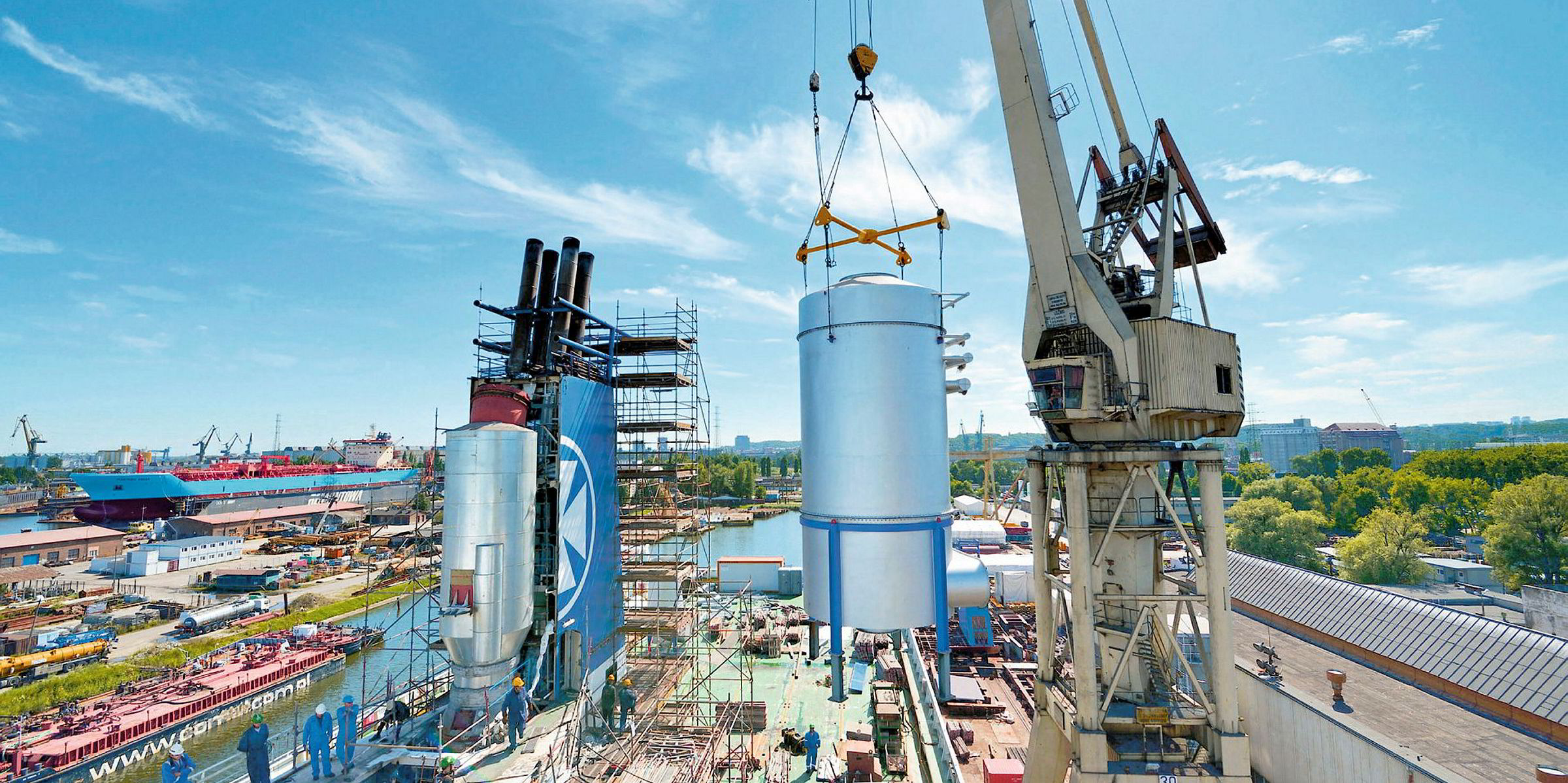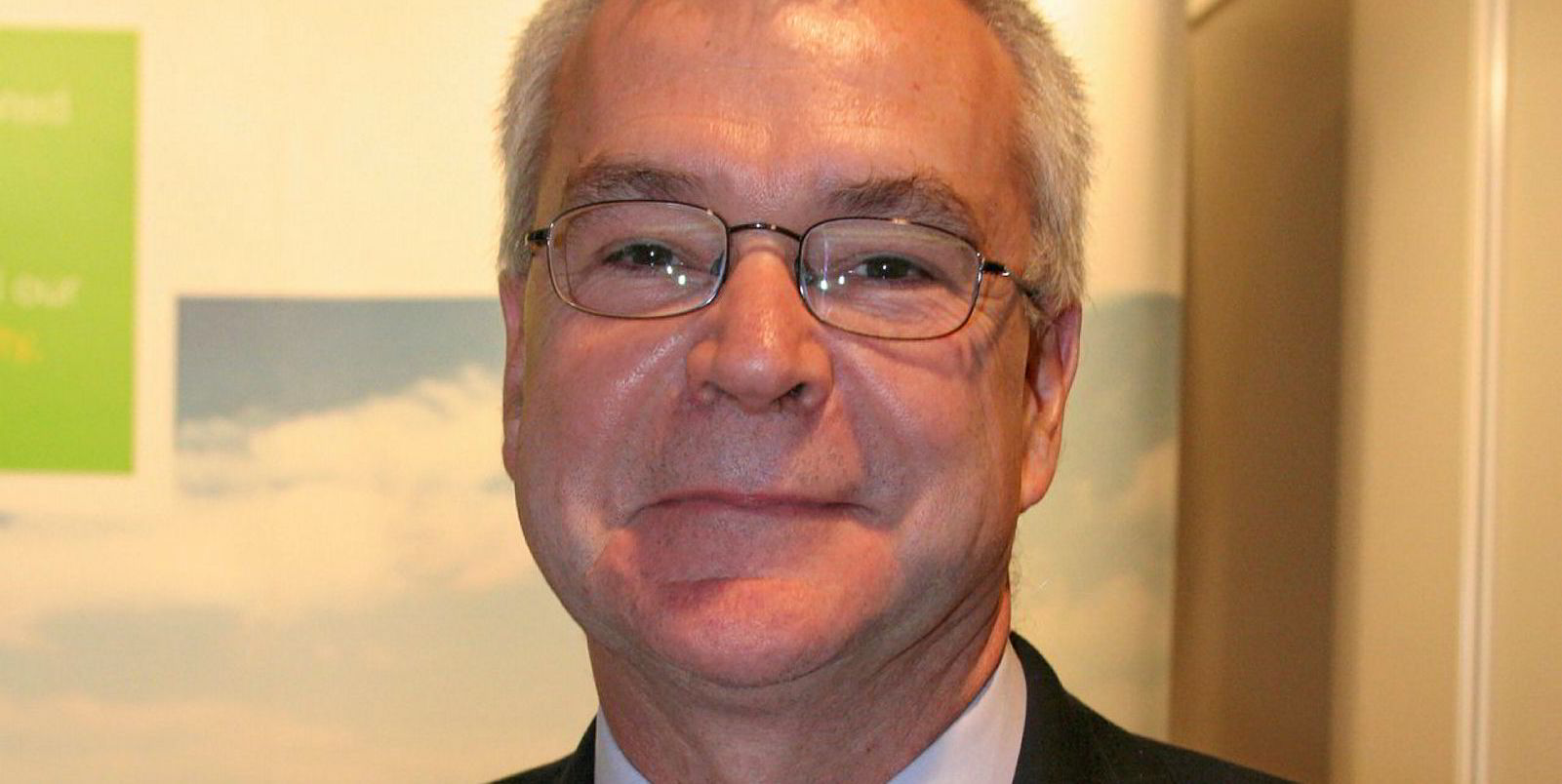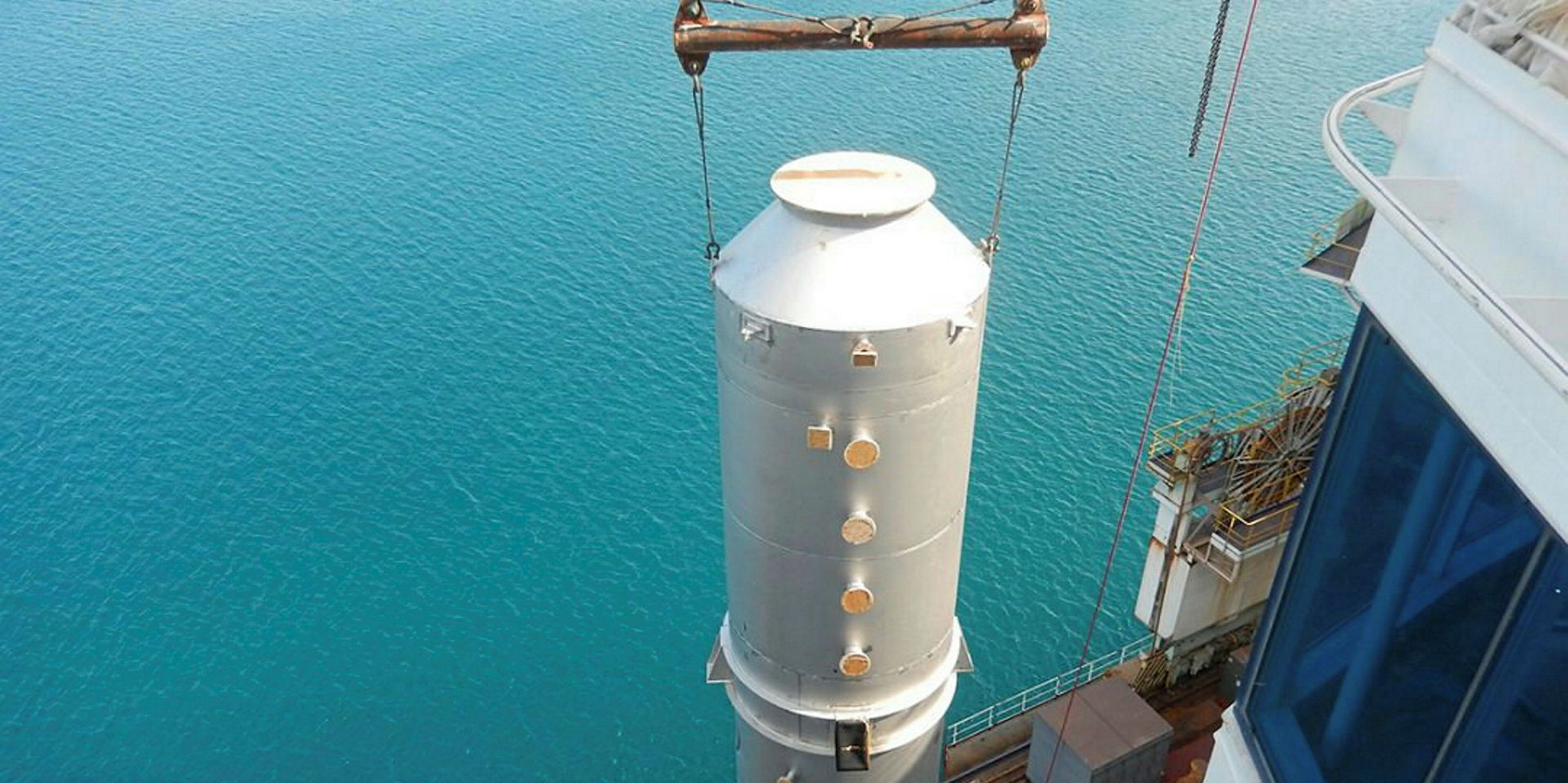Alfa Laval, the world’s third-biggest scrubber manufacturer, has defended its business amid regulators growing scepticism about exhaust gas cleaning systems.
China has banned the discharge of wash water from vessels operating open-loop scrubbers in much of its emission control areas from 1 January this year, following comparable measures by Singapore, Belgium and some US states.
Industry officials believe more countries could impose similar restrictions, in response to the potentially negative impact of wash water on coastal and inland waters.
In an email to TradeWinds, Alfa says it is designing all open-loop systems as “hybrid-ready”.
Such systems give shipowners the option to convert them into hybrid systems that can operate in closed-loop mode later on, should more regulations be introduced.
They are more expensive than pure open-loop types because they come with additional software and piping.
“A scrubber ... traps around 80% of the particulates which would otherwise enter the atmosphere via the exhaust gas. In an open-loop scrubber, the particulates are discharged into the sea with the discharge water,” the Stockholm-listed company says.
“In a closed-loop scrubber, all water that is discharged from the scrubber loop is treated in a water-cleaning unit — this unit removes more than 95% of the absorbed [particulate matter] from the water.
“Closed-loop scrubbers are therefore a significant and positive contribution to a healthier marine environment.”

Vessels installed with scrubbers will be allowed to continue using high-sulphur fuel oil from 2020, while others switch to the more expensive LNG or 0.5%-sulphur fuels.
The IMO has yet to distinguish between different types of scrubbers, however.
More popular
For now, open-loop technology has been more popular among shipowners than hybrid and closed-loop because of lower installation costs.
The recent open-loop bans are expected to hurt the earnings prospects of marine equipment manufacturers with large scrubber business, according to some analysts.
Data from DNV GL shows Alfa has an orderbook of 321 scrubbers, behind only Wartsila and Ecospray Technologies.
Based on UBS estimates, the value of Alfa’s scrubber orders rose to SEK 5.3bn ($590m) last year from SEK 900m in 2017, and the SEK 4.4bn gain accounted for half of its total order increase last year.
“We think that 2018 orders were inflated by a certain buying urgency to have the scrubbers installed before the January 2020 deadline, especially on the part of those shipowners that had a dry-docking slot for regular overhaul anyhow,” UBS analyst Sven Weier says.
But the bank expects Alfa’s scrubber orders to fall to SEK 4.2bn this year and SEK 3.4bn in 2020, and has downgraded the company’s shares from buy to neutral.
“We think a lower oil price and the ban of open-loop scrubbers in certain countries ... will likely add some uncertainty to buying decisions in the first half [of 2019],” Weier says.





